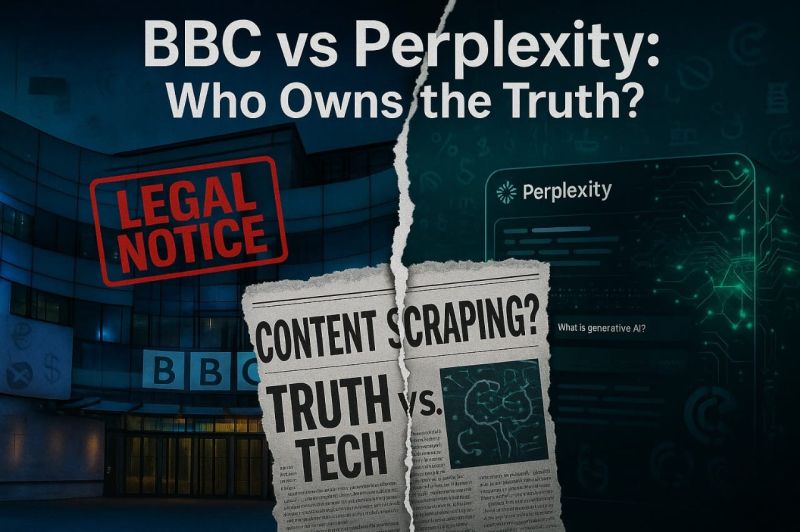Perplexity has claimed that the BBC does not fully grasp technology and intellectual property law. The BBC has threatened legal action against Perplexity, alleging that the startup has been using its content to train AI models without permission.
According to a report from the Financial Times, the BBC sent a letter to Perplexity’s CEO, Aravind Srinivas, demanding that the company cease all scraping of its content for AI training and delete any copies of BBC material in its possession, unless it can propose a financial agreement.
In response, Perplexity described the BBC’s accusations as “manipulative and opportunistic,” asserting that the broadcaster fundamentally misunderstands how technology, the internet, and intellectual property law work.

Perplexity is an AI-driven search engine supported by major investors like Nvidia, Softbank, and Amazon’s Jeff Bezos. Recently, it was reported that the company is close to securing $500 million in funding led by Accel, a prominent US venture capital firm.
The startup claims to collect information from credible sources, such as articles and journals, and presents this information in a conversational manner to answer users’ questions.
The BBC asserts that some of its content has been reproduced verbatim by Perplexity. Last year, the New York Times sent a cease-and-desist letter to Perplexity, demanding it stop using its content for generative AI. Similar accusations have been made by Wired and Forbes regarding content scraping.
Perplexity is also facing a lawsuit from Dow Jones, which publishes the Wall Street Journal and New York Post, alleging that the startup creates fake sections of news stories and misattributes them to real publications.
In response to criticism over its content practices, Perplexity launched a revenue-sharing program with news publishers last year. As of December, this program includes partnerships with well-known organizations like Fortune, Time, the LA Times, and several international publishers.
Earlier this year, David Wong, Chief Product Officer at Thomson Reuters, stated that it is possible to develop AI systems that respect copyright laws, which would enhance those systems and improve access to information.
However, tensions between AI startups and news publishers are growing. This year, over a dozen major news publishers, including Forbes, Condé Nast, Vox, The Guardian, and Politico, filed a joint lawsuit against the Canadian AI company Cohere for alleged systematic copyright and trademark violations.
Additionally, The New York Times initiated a legal battle against OpenAI and Microsoft in late 2023, which remains unresolved.
Other Stories You May Like
